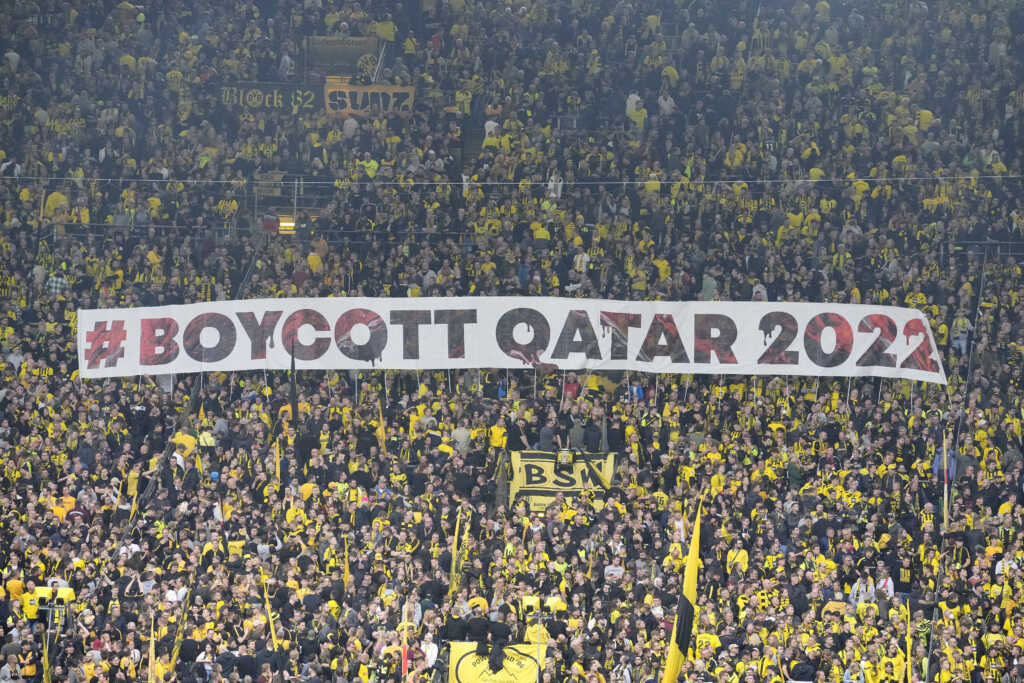With the World Cup dominating headlines, the soccer tournament’s host country, Qatar, has also received much attention for purported human rights woes.
But one area ignored in much of the analysis is Christian persecution, which rages inside the Arab nation.
Listen to the latest episode of CBN’s Quick Start podcast 👇
Todd Nettleton, the spokesman for The Voice of the Martyrs (VOM), a persecution watchdog serving Christians across the globe, told CBN’s Faithwire VOM considers Qatar a “restricted nation.”
“Typically, [a restricted nation] is a place where the government is the persecutor,” he said. “There are other places we call ‘hostile areas,’ where maybe there’s a terrorist group like Boko Haram in Nigeria, but in theory, the government says it’s OK to be a Christian.
Nettleton said Qatar is not a place that would fall under the “hostile” category, as the nation’s government doesn’t want citizens to have Bibles or to convert to Christianity.
“The vast majority of the people are Sunni Muslim and the government of Qatar wants to keep it that way,” he said.
These details might surprise some who are unfamiliar with Qatar, though persecution watchdogs have long warned about the situation on the ground.
Open Doors USA’s World Watch List, an annual report ranking the nations that most fervently persecute Christians, designated Qatar as the 18th worst country for believers.
Nettleton said Qatar’s treatment of the Gospel is peculiar in that Christians are divided into two camps. Foreign workers who are not Qatari nationals are freer to believe and practice. However, native residents are much more restricted:
Despite the overarching disdain for Christian growth, the government has even given money to foreign workers to build churches.
“They are there for foreigners. You’re allowed to do that. You’re allowed to worship,” Nettleton said. “If you’re a Qatari citizen, it is illegal for you to be on that property. They don’t even want you to be at the church buildings.”
Foreigners can sometimes draw the ire of the government if they choose to start evangelizing, he said.
Persecution in Qatar goes much deeper than the government level, though. Tragically, Nettleton said it very often starts within families.
“The first line of persecution before the government ever gets involved is probably your own family,” he said. “It’s your family members who say, ‘Wait a minute. We’re a Muslim family. Now you say you’re a Christian? Well, if you’re a Christian, you can’t be part of this family.'”
Nettleton explained the essentiality of the family in Qatari culture, noting these connections help secure education and employment, among other supports.
“It’s not just a matter of broken relationships; it really is a matter of no more opportunity,” he said. “No more opportunity for advancement. No more opportunity for employment. And it is a huge sacrifice.”
Qatar has been in the headlines of late over various issues, including consternation surrounding the illegality of homosexuality in the nation, and the treatment of migrant workers, among other issues.
Some have wondered why the World Cup — an incredibly lucrative event — is being held in such a restrictive nation. It’s choice to host the event has a strange history involving purported bribes and strategic alliances some say made it possible.
When one considers the persecution issues, such questions become even more paramount.
As for Nettleton, he said the event holds an important reminder for believers.
“It is a PR victory to host the World Cup, to host the Olympic games. It absolutely is a PR victory for them,” he said. “I hope for us, as Christians, it’s a reminder to pray for Qatar, pray for the Christians who are there.”
***As the number of voices facing big-tech censorship continues to grow, please sign up for Faithwire’s daily newsletter and download the CBN News app, developed by our parent company, to stay up-to-date with the latest news from a distinctly Christian perspective.***



